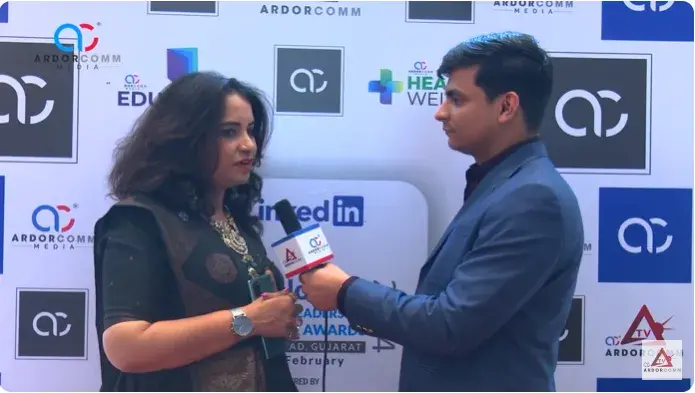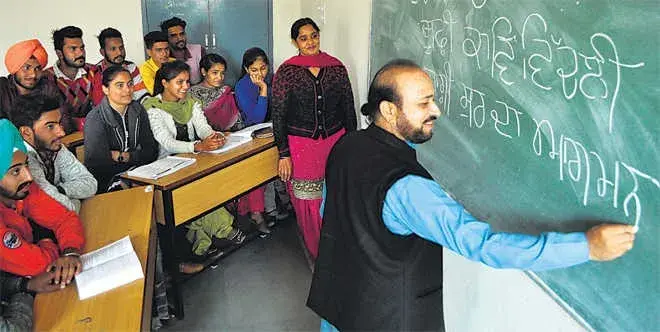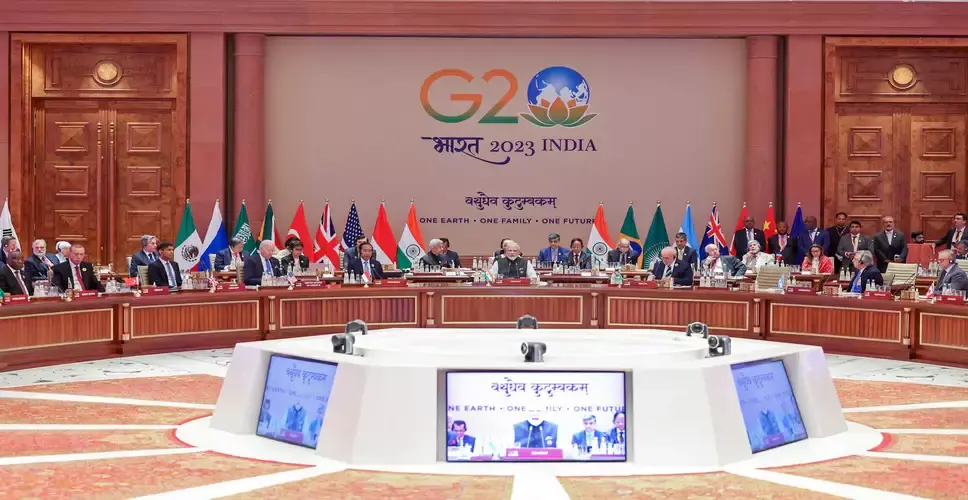Dr. Geetika Saluja, CEO Projects, Anand Niketan Schools expressed her views on NEP 2020
“Right now we are pampering our kids but it’s not about pampering it’s about ensuring that let them be not only survivors but game changers,” said Dr. Geetika Saluja, CEO Projects, Anand Niketan Schools, at ArdorComm Media Group hosted ‘New Normal – Education Leadership Summit & Awards 2024’ on 10th February 2024 at Crowne Plaza Ahmedabad City Centre, Ahmedabad, Gujarat. How do you think educators can align with government initiatives for the betterment of the education system? It’s not about educators; we are all educators, and we are all learners in some and other ways. So, I am just trying to talk to society and trying to initiate each and every person. Everyone is there to say that the government does not give us anything. It’s not about schooling has not helped you or your college degree is not helping you. Now, we are in a state of what we have contributed. So, when it comes to aligning ourselves it’s about educators. Yes! simultaneously I am talking about society coming forward and giving their 5 hour a year in academia because now after so much experience every one of us has expertise in one topic. We can go to Academia and design curriculum, help them out. Just 5 hours of a year you need to contribute and that’s how the government initiatives will be also useful through the PPP model. It’s not only about the public, or organisation, it also talks about each and every individual. We used to talk about CSR, but now it is about ISR. So it’s an individual responsibility of each and every society member to ensure that we are able to speak in bridging the gap between the skill gaps. It’s about employability or self-employment especially, I would be advocating for your 5 hours in a year can change our education system and take India to a different pinnacle together. How far the Anand Niketan school have reached in implementing the new education policy? Today I was a part of a panel that talked about inclusive education. And holistic doesn’t mean only in the definition but holistic means that we are able to cater to diverse needs of diverse learners, ensure that integrating but inclusive. Each and every potential has been taken care of and nurtured in measure to maximize. It’s about taking care of the social, economic, cultural, psychological, and physical needs of each and every individual. When it comes to NEP, this is the need I was just talking about but that’s what education should be doing about it. It’s good that under the light of NEP 2020 the educator and education forum has started talking about it. Now, I am sure that the implementation face is doing very well. When it comes to Anand Niketan School, very holistic curriculum wherein we invite not only the prominent industry people but we have a student-centric approach like project-based learning. Students get enough opportunity to work in a group to present their work. Simultaneously, to ensure that they are the ones who are the face of the various along with the mind behind it and with this, a level of confidence is there. So if one is confident in the mind and the one that confident in the face. Anand Niketan has been very successful in developing confident learners. How do you see the new education policy as promoting the experience of learning and targeting rote learning? NEP does not promote rote learning at all, Let’s talk about experiential learning, but experience comes when your child at a very early age gets exposed to diverse circumstances and when it comes to diverse circumstances I just mention one thing that the seed is a sown deep in the ground, it’s dark but it’s being planted. Right now we are pampering our kids but it’s not about pampering it’s about ensuring that they are not only survivors but game changers. Individuals need to be very focused and sown the seeds so deep that they come out they emerge successful and happy. What was the overall takeaway from this event also ArdorComm Media is celebrating its second anniversary any message you wish to share? ArdorComm Media has done a wonderful job by creating a wonderful platform, and you continue doing and bringing the academia, industry, higher education and K12 together. But only one thing is we need parents and society to understand because eventually, parents are from the education system which we are not very happy with. They are also the product of that education system so it’s very important that eventually whatever the education system incorporates, parents must understand, the society understand. If we get a chance, let’s do it in a way where we can invite representatives and the society. Whatever you want to talk about, trying to do, is what is supported because they are eventually customer as well as targets.



